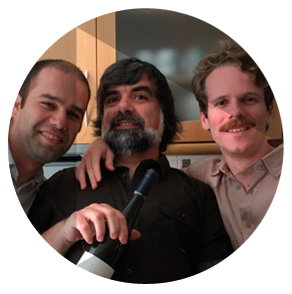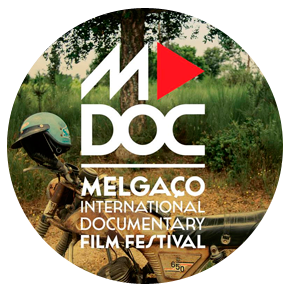
Films
ALL INCLUSIVE
Running for the Jean-Loup Passek Award forBEST INTERNATIONAL SHORT OR MEDIUM LENGTH FILM
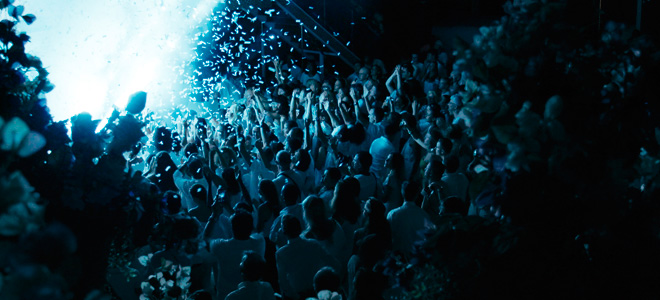
Corina Schwingruber Ilić | Switzerland, 2018, 10'
Under the spell of mass entertainment on the high seas
- Photography: Nikola Ilić
- Sound: Robert Büchel
- Editing: Corina Schwingruber Ilić
- Production: Stella Händler


AROUND THE BED OF A DYING COLLABORATOR
Running for the Jean-Loup Passek Award forBEST INTERNATIONAL FEATURE LENGTH FILM
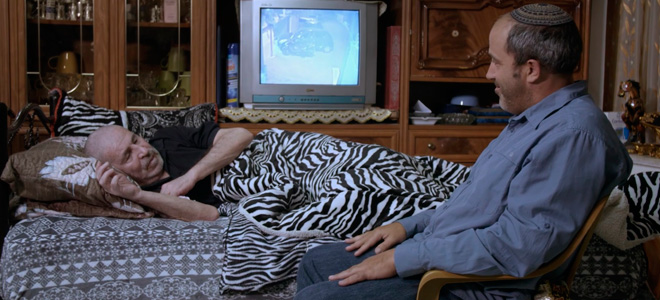
Tal Michael, David Ofek | Israel, 2018, 51'
Unes is paralyzed after a massive stroke. He lies in bed in the family’s living room, watching the live feed from security cameras installed at the perimeter of his home - a matter of protection after several assaults on his family. "We are guilty, we’ve brought shame on ourselves," this is how Unes summarizes decades of collaboration with Israeli security forces and helping Jews to buy land from Palestinians.
- Photography: Tulik Galon
- Sound: Elad Goldberg, Tomer Blayer, Yaniv Levy
- Editing: Ido Bahat
- Production: Ronnie Manor


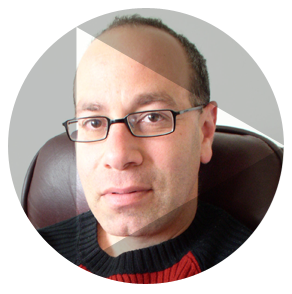
BY THE NAME OF TANIA
Running for the Jean-Loup Passek Award forBEST INTERNATIONAL FEATURE LENGTH FILM
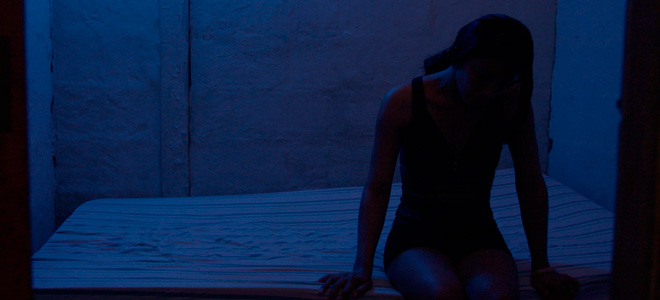
Mary Jimenez, Bénédicte Liénard | Belgium, 2019, 85'
The Amazon flows lazily through the goldmine-gashed landscape of northern Peru. Using real eyewitness accounts, directors Bénédicte Liénard and Mary Jiménez tell the story of a young woman who winds up forced into prostitution when her initially hopeful attempt to escape the stifling limitations of village life goes wrong. Step by step, she is robbed of her moral and physical integrity.
- Photography: Virginie Surdej
- Sound: David Vranken
- Editing: Marie-Hélèe Dozo
- Production: Hanne Phlypo

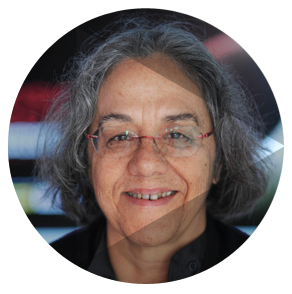

CAMPO
Running for the Jean-Loup Passek Award forBEST INTERNATIONAL FEATURE LENGTH FILM
BEST PORTUGUESE DOCUMENTARY
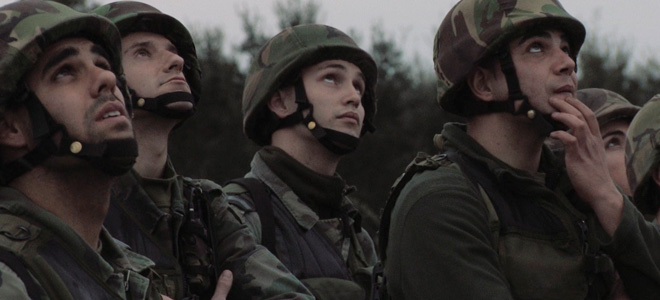
Tiago Hespanha | Portugal, 2019, 100'
The word "campo" (field) comes from the Latin ‘capere’ (to capture). “Campo de Marte” (The Field of Mars) was in the ancient times Rome’s training arena for war. At the outskirts of Lisbon, “Campo” hosts today Europe’s largest military base. In this place military troops train fictional missions, astronomy aficionados observe the stars and a boy plays the piano for the wild deers lurking in the dark. In here, I saw life manifesting itself with its contradictory and mysterious dimensions. CAMPO reflects on the nature of the mundane and the transcendental, as they reveal themselves inextricably intertwined.
- Photography: Tiago Hespanha, Rui Xavier, Luisa Homem, Cláudia Varejão, Paulo Menezes, João Vladimiro, Vasco Viana
- Sound: Eva Valiño, Adriana Bolito, Giorgio Gristina, Tiago Melo Bento, Diogo Allen, Tiago Raposinho, Rafael Cardoso, Gonçalo Mota
- Editing: Francisco Moreira, Tiago Hespanha
- Production: Joana Bravo, João Gusmão

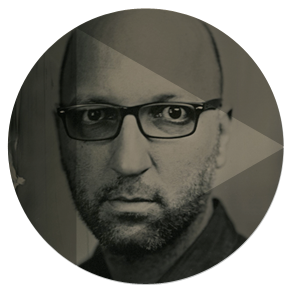
CHINESE DREAM
Running for the Jean-Loup Passek Award forBEST INTERNATIONAL SHORT OR MEDIUM LENGTH FILM
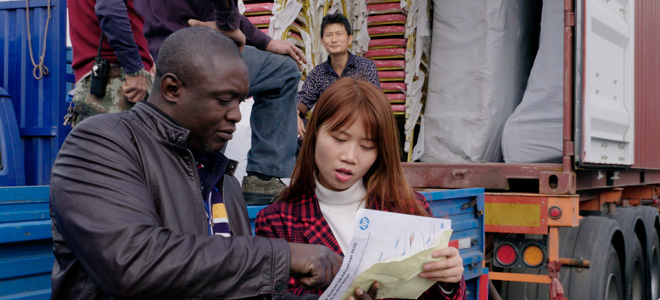
Lena Karbe, Tristan Coloma | Germany, 2018, 24'
Chinese Dream is an episodic documentary, set in an African milieu in Guangzhou, China. For the first time in its history China becomes an immigration goal. At the moment more than 300.000 Africans live permanently in China. The protagonists of CHINESE DREAM are Chinese who interact with Africans on a daily basis: They come from different social classes and occupations. Chinese Dream shows how Chinese society tackles the immigration challenge coming from Africa.
- Photography: Li Dong, Sura Tian Wei
- Sound: Kyle Chen
- Editing: Karuna A. Fuchs
- Production: Lena Karbe

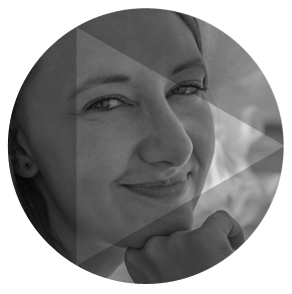
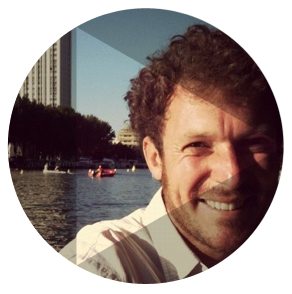
CHRIS THE SWISS
Running for the Jean-Loup Passek Award forBEST INTERNATIONAL FEATURE LENGTH FILM
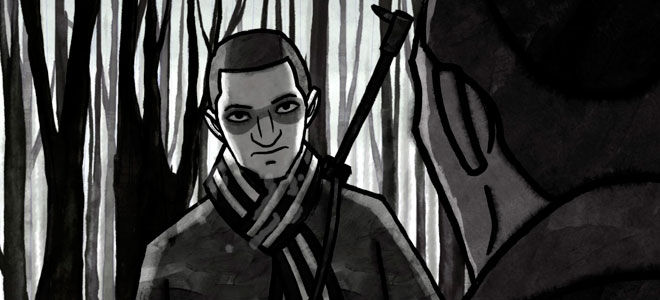
Anja Kofmel | Switzerland / Croatia / Finland / Germany, 2018, 90'
Anja Kofmel already admired her cousin Chris as a little girl. His mysterious death in the midst of the wars in Yugoslavia in 1992 still keeps her occupied. Especially as the young Swiss journalist wore the uniform of an international mercenary group at the time of his death. What happened?
- Photography: Simon Guy Fässler
- Sound: Markus Krohn
- Editing: Stefan Kälin
- Production: Dschoint Ventschr Filmproduktion AG, Nukleus Film, MA.JA.DE. Filmproduktion, IV Films

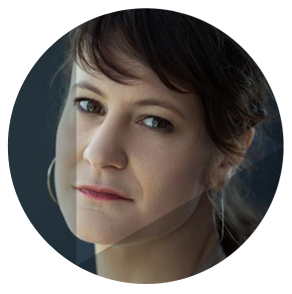
DECLIVE
Running for the Jean-Loup Passek Award forBEST INTERNATIONAL SHORT OR MEDIUM LENGTH FILM
BEST PORTUGUESE DOCUMENTARY
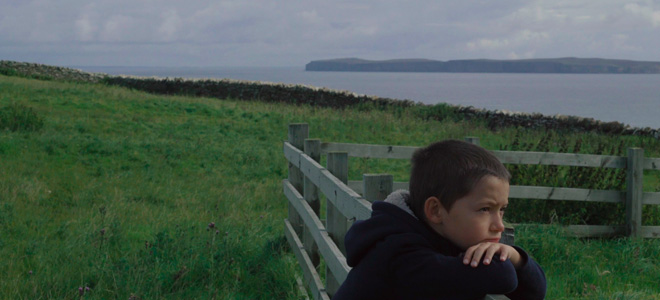
Eduardo Brito | Portugal, 2018, 7'
And then, a house will appear to be waiting you: as in a slope, this is a leaning story on the memory of places and things, on returns and new beginnings.
- Photography: Eduardo Brito
- Sound: Pedro Marinho, Vasco Carvalho
- Editing: Eduardo Brito, Luís Costa
- Production: Rodrigo Areias - BANDO À PARTE

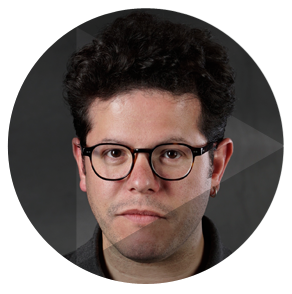
FORDLANDIA MALAISE
Running for the Jean-Loup Passek Award forBEST INTERNATIONAL SHORT OR MEDIUM LENGTH FILM
BEST PORTUGUESE DOCUMENTARY
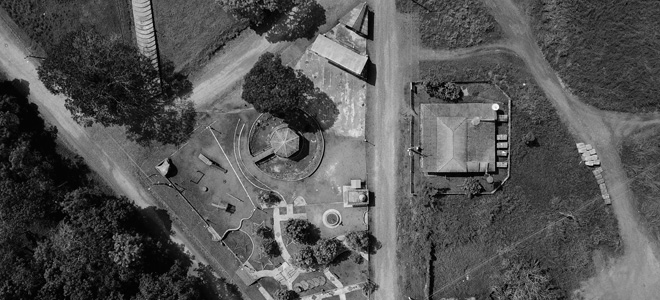
Susana Sousa Dias | Portugal, 2019, 40'
Fordlandia Malaise is a film about the memory and the present of Fordlandia, the company town founded by Henry Ford in the Amazon rain forest in 1928. His aim was to break the British rubber monopoly and produce this material in Brazil for his car production in the United States. Today, the remains of construction testify to the scale of the failure of this neocolonialist endeavor that lasted less then a decade. Nowadays, Fordlandia is a space suspended between times (20th and 21st centuries), between utopia and dystopia, between visibility and invisibility: architectural buildings of steel, glass and masonry still remain in use while traces of indigenous life left no marks on the ground. Although Fordlandia is well known due to the short lasting Fordian period, one must not forget the history either before or after. Giving voice to the inhabitants who claim the right to write their own story and reject the ghost town label, Fordlandia Malaise blends together archive imagery, drone footage, tales and narratives, myths and songs.
- Photography: Susana de Sousa Dias
- Sound: Susana de Sousa Dias
- Editing: Susana de Sousa Dias
- Production: Ansgar Schaefer

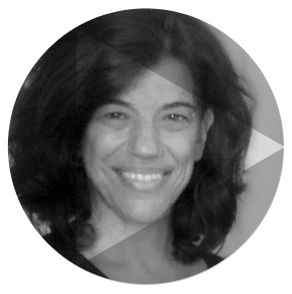
HÁLITO AZUL
Blue Breath
Running for the Jean-Loup Passek Award forBEST INTERNATIONAL FEATURE LENGTH FILM
BEST PORTUGUESE DOCUMENTARY
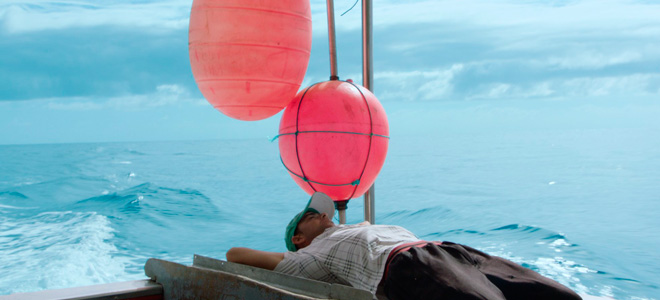
Rodrigo Areias | Portugal / Finland / France, 2018, 75'
Crushed by a volcano against the ocean, Ribeira Quente (Hot Stream) is a fishing village in S. Miguel Island in the Azores facing the last days of a fishing activity as they know it. Everyone fights for normal days while life has to continue even with the fish's scarcity.
- Photography: Jorge Quintela
- Sound: Pedro Marinho, Sérgio Silva
- Editing: Ricardo Freitas, Pedro Bernardino, Timo Peltola
- Production: Rodrigo Areias - BANDO À PARTE

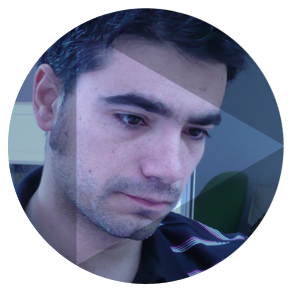
HAMADA
Running for the Jean-Loup Passek Award forBEST INTERNATIONAL FEATURE LENGTH FILM
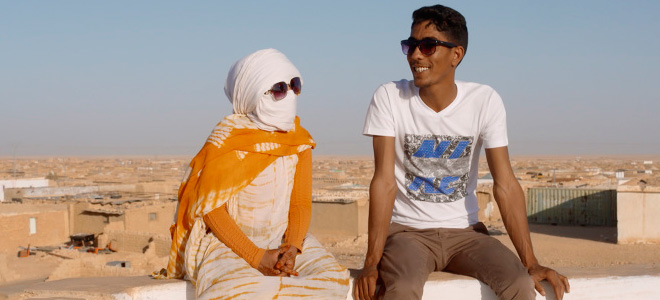
Eloy Domínguez Serén | Sweden / Norway / Germany, 2019, 88'
With vitality, humor and unexpected situations, this film paints an unusual portrait of a group of young friends living in a refugee camp in the middle of the stony Saharan desert.
- Photography: Eloy Domínguez Serén
- Sound: Ted Krotkiewski
- Editing: Ana Pfaff, Eloy Domínguez Serén
- Production: Michael Krotkiewski, David Herdies

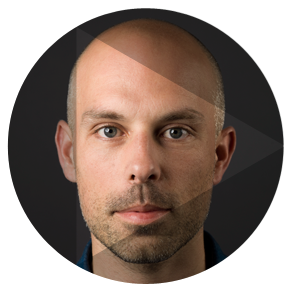
L'AVENIR DU PASSÉ, PIERRE ET YOLAND PERRAULT
Running for the Jean-Loup Passek Award forBEST INTERNATIONAL FEATURE LENGTH FILM
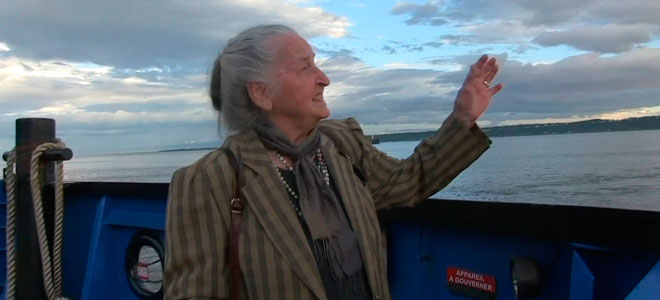
Mina Rad | France, 2019, 61'
What does an Iranian in Île-aux-Coudres more than 14,000 kilometers from their homeland? The answer to this question is the story of this film, a meeting with one of the pillars of documentary film, Pierre Perrault.
- Photography: Mina Rad
- Sound: Caroline Desbiens, Vincent Hamel
- Editing: Mina Rad
- Production: Mina Rad

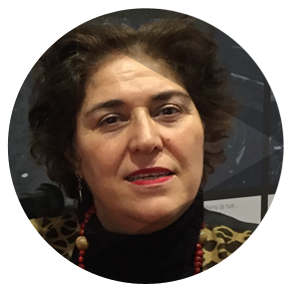
LA FLACA
The Bony Lady
Running for the Jean-Loup Passek Award forBEST INTERNATIONAL SHORT OR MEDIUM LENGTH FILM

Thiago Zanato, Adriana Barbosa | USA, 2018, 20'
La Flaca is a film about Arely Vazquez, a transgender woman and leader of the Santa Muerte (Saint Death) cult in Queens, New York. During her yearly celebration to the Bony Lady ("La Flaca" as she likes to call her), Arely faces a lot of challenges to fulfill a promise she made ten years ago.
- Photography: Jano Mejia
- Sound: Mike Wolk Snyder, Lindsey Cordero
- Editing: Rodrigo Carneiro
- Production: Sebastián Aguirre

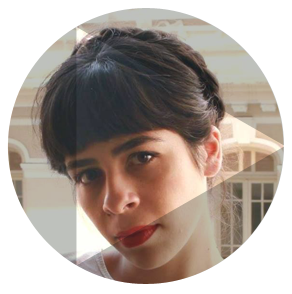
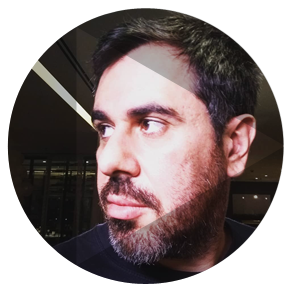
WIR TRÄUMTEN VOM FRÜHLING
MY RUSSIAN SPRING
Running for the Jean-Loup Passek Award forBEST INTERNATIONAL FEATURE LENGTH FILM
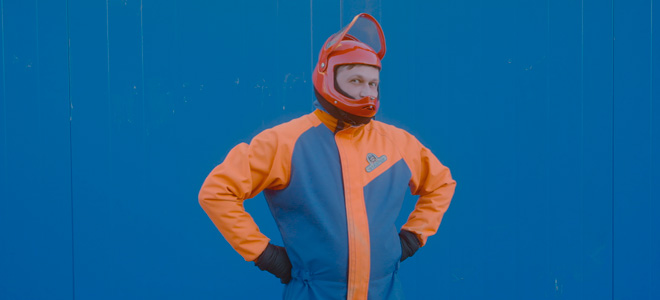
Xenia Sigalova | Germany, 2018, 79'
After the collapse of the Soviet Union the parents of filmmaker Xenia Sigalova fled with her to Germany. 20 years later she returns to her homeland to explore what became of her former three best friends. Roman, Vladimir and Alexander grew up in the Soviet Union and had to find their way in Putin's “new” Russia. On her journey Xenia gets an insight in the life of the “Generation Perestroika” and creates an intimate portrait of today's Russia.
- Photography: Alexander Costea
- Sound: Alexander Costea
- Editing: Miriam Märk
- Production: Alexander Krötsch, Felix Kempter

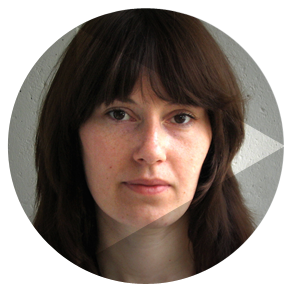
O LABIRINTO DA SAUDADE
Saudade's Labyrinth - A Mythic Psychoanalysis Of The Portuguese Destiny
Running for the Jean-Loup Passek Award forBEST INTERNATIONAL FEATURE LENGTH FILM
BEST PORTUGUESE DOCUMENTARY
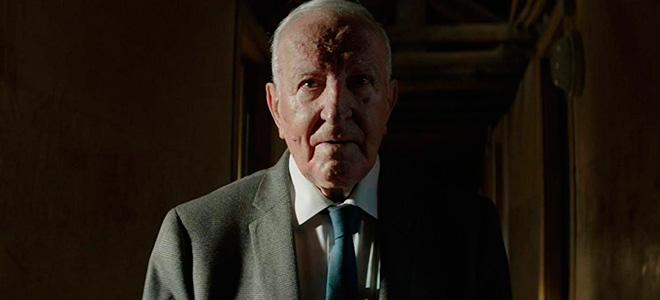
Miguel Gonçalves Mendes | Portugal, 2018, 65'
LongShot invited Miguel Gonçalves Mendes (José e Pilar) to adapt to cinema one of the most lucid works of Portuguese culture – “Saudade's Labyrinth"" (O Labirinto da Saudade, translated to English as “A Mythic Psychoanalysis of the Portuguese Destiny”), on a unique journey inside the brilliant mind of Eduardo Lourenço. At the age of 94, the writer and philosopher Eduardo Lourenço projects through his memory the questions that still remain in him today. Which traumas have defined us as Portuguese people? Who are we? What have we done? Which atrocities have we committed? Which path should we follow? These questions are the starting point to “O Labirinto da Saudade”, a film about the “condemned nation since its inceptions to run out of dreams larger than itself”, but also the celebration of the life and work of one of the greatest authors of Portuguese Culture. Narrated and starring Eduardo Lourenço himself, the documentary walks through his memory and the history of Portugal. Throughout the journey, he crosses paths with ghosts from our past and friends from his present - outstanding figures of the Lusophone culture such as Álvaro Siza Vieira (Portuguese acclaimed architect), José Carlos Vasconcelos (Portuguese writer), Diogo Dória (Portuguese lawyer and writer), Gonçalo M. Tavares (Portuguese writer), Lídia Jorge (Portuguese writer), Ricardo Araújo Pereira (Portuguese comedian) and Gregório Duvivier (Brazilian comedian), who assume the role of interlocutors and drivers of the reflections written in the book.
- Photography: Leandro Fuzeta
- Sound: Ricardo Sequeira
- Editing: António Tainha
- Production: Vasco Sequeira

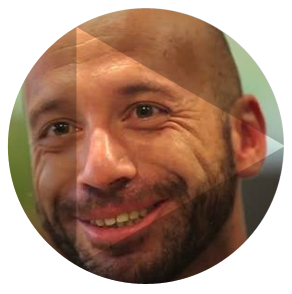
O MAR ENROLA NA AREIA
The Hissing Of Summer Sands
Running for the Jean-Loup Passek Award forBEST INTERNATIONAL SHORT OR MEDIUM LENGTH FILM
BEST PORTUGUESE DOCUMENTARY
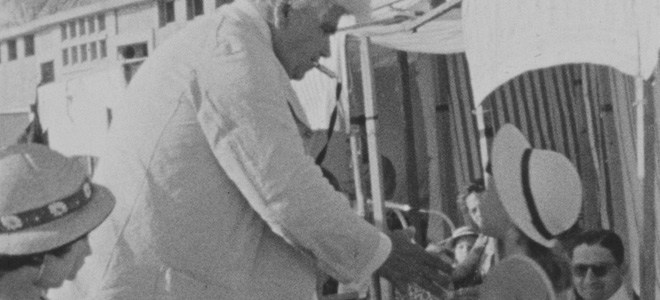
Catarina Mourão | Portugal, 2019, 15'
Film newsreels show a mixed crowd enjoying seaside fun. Every summer however, a man appears on the beaches. Meticulously dressed, announcing himself with a blast on a whistle. A worrying or familiar figure, who makes children run away or attracts them like the Pied-Piper of Hamelin.
- Photography: Paulo Menezes
- Sound: Armanda Carvalho, Tiago Matos
- Editing: Pedro Mateus Duarte
- Production: Laranja Azul

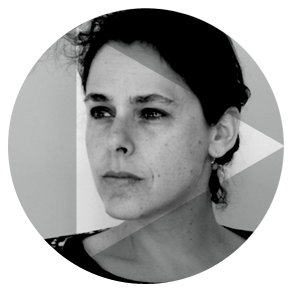
PEOPLE OF THE WASTELAND
Running for the Jean-Loup Passek Award forBEST INTERNATIONAL SHORT OR MEDIUM LENGTH FILM
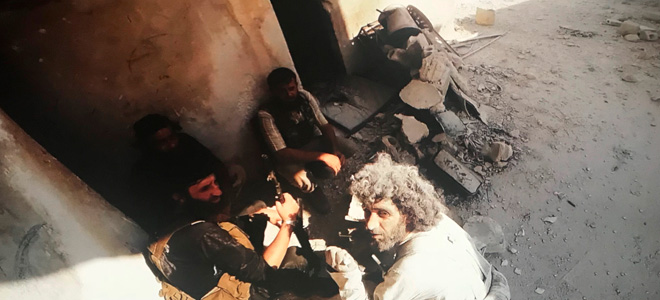
Heba Khaled | Syrian Arab Republic, 2018, 21'
People of the Wasteland is an experimental short-film in a first-person point of view depicting the clashes of Syrian fighters in the front line. In the chaos of war, the lines between right and wrong become blurred. This exclusive Go-Pro footage from inside war aims to remind us that in a territory where the landscape and the people are ephemeral because of war, only the camera can remain alive, and only the image of a certain moment can remain eternal.
- Photography: Ahmad Nasser
- Sound: Ansgar Frerich
- Editing: Alex Bakri
- Production: Talal Derki


QUATRO ESTAÇÕES E OUTONO
Four Seasons And Autumn
Running for the Jean-Loup Passek Award forBEST INTERNATIONAL FEATURE LENGTH FILM
BEST PORTUGUESE DOCUMENTARY
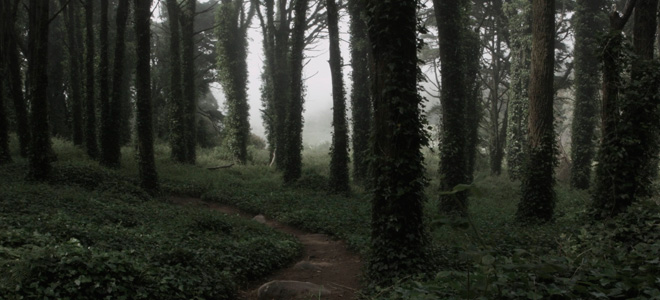
Pedro Sena Nunes | Portugal, 2018, 90'
A film director follows the autumnal trail of leaves that once graced the branches. A girl builds autumns as she wanders in a labyrinth of leaves. A man persists on watering the place the tree left behind. A woman who lived that autumn. All of them in a space called Jorge Listopad.
- Photography: Nuno Madeira
- Sound: Nuno Rua
- Editing: João Coroa Justino
- Production: Rodrigo Areias - BANDO À PARTE

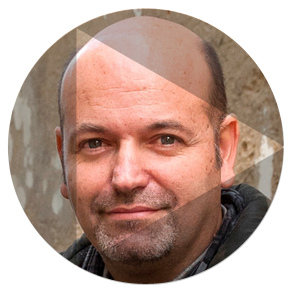
RUSSA
Running for the Jean-Loup Passek Award forBEST INTERNATIONAL SHORT OR MEDIUM LENGTH FILM
BEST PORTUGUESE DOCUMENTARY
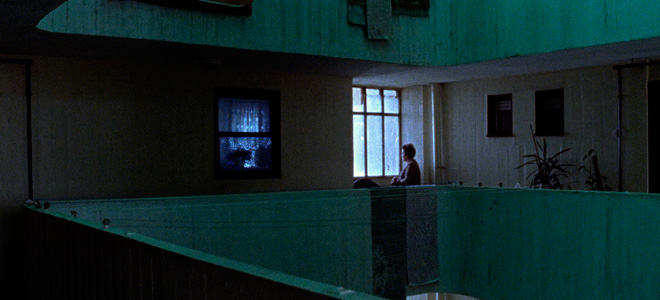
João Salaviza, Ricardo Alves Jr. | Portugal, 2018, 20'
Russa returns to Bairro do Aleixo in Porto, visiting her sister and friends with whom she celebrates her son’s birthday. In this brief reunion, Russa returns to the collective memory of her neighbourhood where three of the five towers still remain standing.
- Photography: Renée Nader Messora
- Sound: Léo Bortolin
- Editing: João Salaviza, Ricardo Alves Jr.
- Production: João Salaviza, Renée Nader Messora - KARÕ FILMES; Ricardo Alves Jr., Thiago Macêdo Correia - ENTRE FILMES; Renée Nader Messora - MATERIAL BRUTO

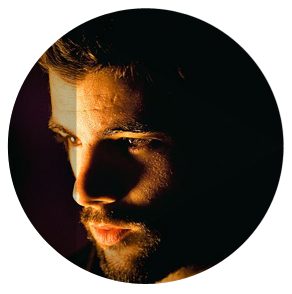
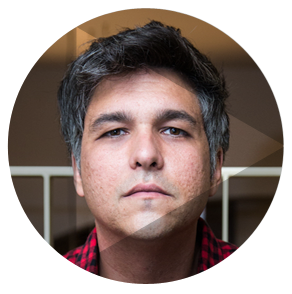
RUSSIAN DREAMER
Running for the Jean-Loup Passek Award forBEST INTERNATIONAL SHORT OR MEDIUM LENGTH FILM
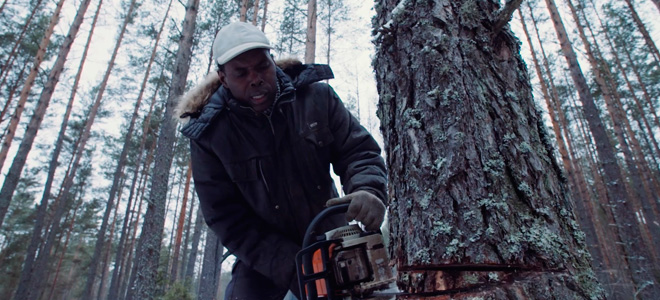
Dmitrii Vologdin, Ilya Zverev | Russia, 2018, 38'
Year after year the “typical” Russian farmer and enthusiastic Russian patriot Francois Tulikunkiko tries to make ends meet and find an answer to the vital question: Why do people in the Russian countryside live so poorly when the country is so rich? It is a story rich in irony about life in the Russian province far from the busy cities. Francois is a dreamer with great plans, who encounters obstacles everywhere he goes, from habitual indifference to the all-pervasive corruption.
- Photography: Ilya Zverev
- Sound: Vladimir Nesgovorov
- Editing: Ella Livshic
- Production: Vlad Ketkovich, Alexei Telnov

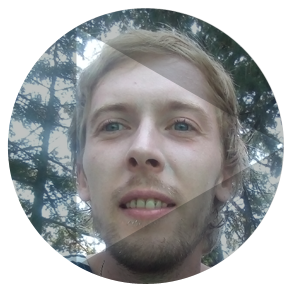
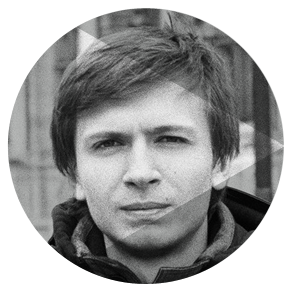
LA STRADA DEI SAMOUNI
Samouni Road
Running for the Jean-Loup Passek Award forBEST INTERNATIONAL FEATURE LENGTH FILM
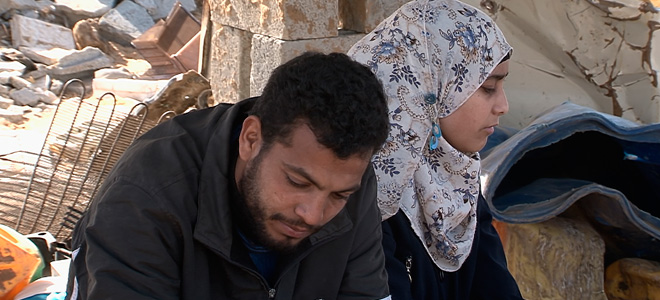
Stefano Savona | Italy / France, 2018, 126'
In the rural outskirts of Gaza City a small community of farmers, the Samouni extended family, is about to celebrate a wedding. It’s going to be the first celebration since the last war. Amal, Fuad, their brothers and their cousins have lost their parents, their houses and their olive trees. The neighborhood where they live is being rebuilt. As they replant trees and plow fields, they face their most difficult task: piecing together their own memory. Through these young survivors’ recollections, Samouni Road conveys a deep, multifaceted portrait of a family before, during and after the tragic event that changed its life forever.
- Photography: Stefano Savona
- Sound: Stefano Savona
- Editing: Luc Forveille
- Production: Penelope Bortoluzzi, Marco Alessi, Cécile Lestrade

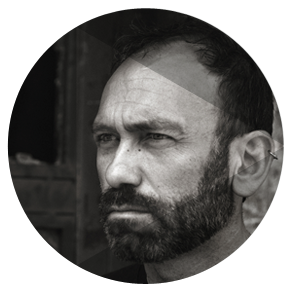
SELFIE
Running for the Jean-Loup Passek Award forBEST INTERNATIONAL FEATURE LENGTH FILM

Agostino Ferrente | Italy, 2019, 85'
Alessandro and Pietro are 16 years-old and live in Naples, district of Traiano where, in the summer of 2014, Davide Bifolco, also 16, was shot by a policeman who mistook him for a fugitive. They are inseparable friends, Alessandro works as a waiter in a bar, Pietro dreams to become a hairdresser. Alessandro and Pietro accept the director’s proposal to shoot themselves with an iPhone, commenting live on their own daily experiences, their close friendship, their neighbourhood – now empty, in the middle of summer – and the tragedy that ended Davide’s life.
- Photography: Alessandro Antonelli, Pietro Orlando
- Sound: Benni Atria
- Editing: Letizia Caudullo, Chiara Russo
- Production: Marc Berdugo, Barbara Conforti (Magneto)
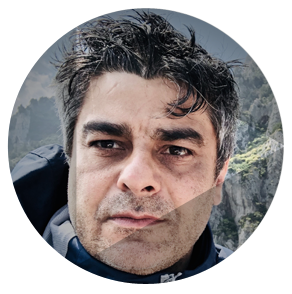
SISTERS OF THE TREES
Running for the Jean-Loup Passek Award forBEST INTERNATIONAL FEATURE LENGTH FILM
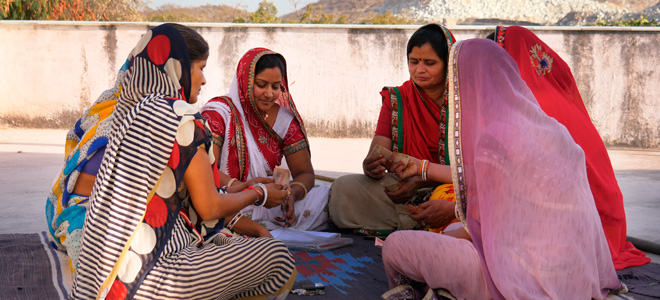
Camila Menéndez, Lucas Peñafort | Argentina, 2019, 82'
Among the arid lands of Rajasthan, surrounded by marble mines, there is an oasis: a small town called Piplantri, where women are no longer afraid of giving birth to a girl. Since 2005, every time a girl is born in Piplantri, 111 trees are planted in her name to celebrate the occasion. A man named Shyam Sunder Paliwal lost a 16-year-old daughter and decided to plant a tree in his memory. In her pain, he could not believe that sometimes people could end their own daughter's life, just for economic reasons. Then he realized that trees should be planted not to commemorate death, but to celebrate the lives of all girls. That’s how the idea was born: he convinced the villagers, one at a time, that the basis of a bright future was to grow trees, take care of water and educate girls.
- Photography: Camila Menéndez
- Sound: Lucas Peñafort
- Editing: Santiago Esteves, Camila Menéndez
- Producer: Victoria Chales
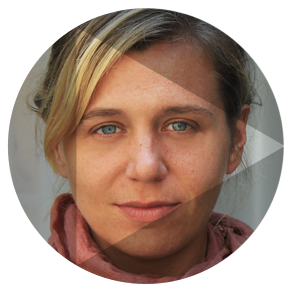
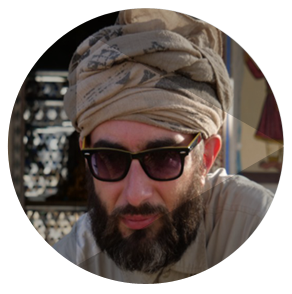
TERRA
Running for the Jean-Loup Passek Award forBEST INTERNATIONAL SHORT OR MEDIUM LENGTH FILM
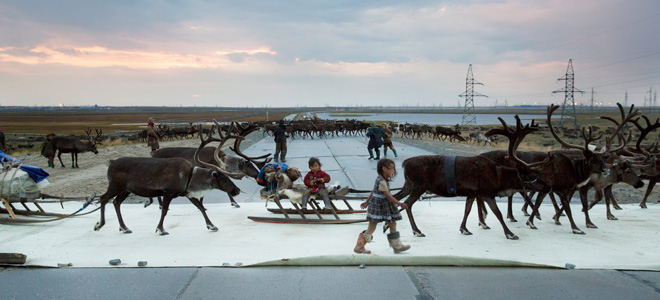
Julia Kushnarenko | Russia, 2018, 30’
In 2012 the production at the Bovanenkovo gas field on the Yamal Peninsula, a remote section of Siberia, had begun. The industrial zone had been located right on the historical migration route of the indigenous reindeer herders- Nenets. Now they wade through the industrial zone to get the summer pastures.
- Photography: Julia Kushnarenko
- Sound: Julia Kushnarenko
- Editing: Julia Kushnarenko
- Production: Julia Kushnarenko, Maxim Arbugaev


DER PATRIOT
The Patriot
Running for the Jean-Loup Passek Award forBEST INTERNATIONAL SHORT OR MEDIUM LENGTH FILM
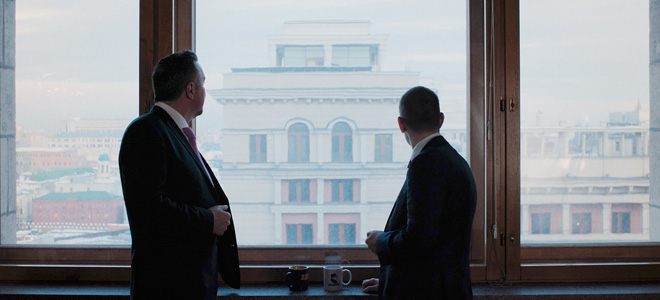
Katja Fedulova | Germany, 2018, 30'
At the age of 21, Vasily Vlasov became the youngest parliamentarian in the Russian Duma. Given his abundant confidence and self-assured manner, he could have been a refreshing new voice. But Vasily’s ideals are rooted in the deeply conservative party LDPR which is viewed by some as fascistic.
- Photography: Sergei Amirdzhanov
- Sound: Elena Pertosyan
- Editing: Calle Overweg
- Production: Katja Fedulova


THE WAR ON MY PHONE
Running for the Jean-Loup Passek Award forBEST INTERNATIONAL FEATURE LENGTH FILM

Elke Sasse | Germany / Switzerland, 2018, 90'
Hundreds of thousands of people have fled Syria to Europe since 2015. They live among us, and yet they are “not really here”. Every minute their mobile phones may be transmitting messages and videos from Syria; the war is always present on their phones and they can’t do anything about it. The film portrays four people in Europe torn between these two realities and gives an intimate insight into daily life in Syria through private messages and videos from people inside the war zone:
- Photography: Jakob Stark
- Sound: Pascal Capitolin, Karsten Höfer
- Editing Janine Dauterich
- Production: Holger Preusse

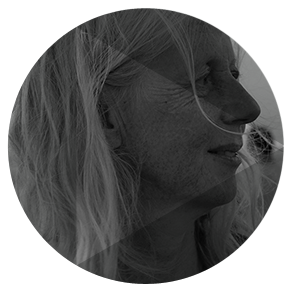
TINY SOULS
Running for the Jean-Loup Passek Award forBEST INTERNATIONAL FEATURE LENGTH FILM
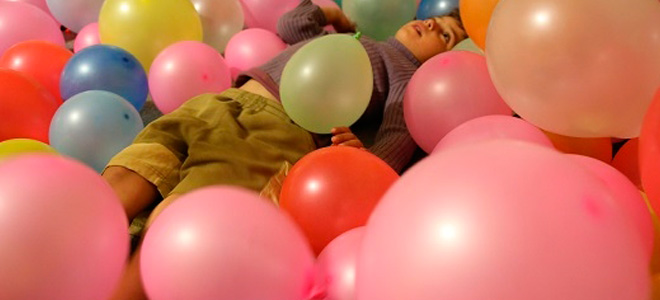
Dina Naser | Jordan / Qatar / France, 2019, 85'
After escaping the Syrian war, a free-spirited young girl and her family must navigate confined life when stranded in Zaatari Refugee Camp, Jordan. Over four years, the director follows her characters’ lives within barb-wired camp walls, capturing the resilient shift from childhood to adolescence, along with many states of adapting and survival in between, leading up to the eventual clash that threatens their fate.
- Photography: Hasan Abu Hammad, Dina Naser
- Sound: Antonin Dalmasso
- Editing: Najwa Khachimi, Qutaiba Barhamji
- Music: Ronald Heu
- Color Grading: Hazem Berrabah
- Production: Dina Naser

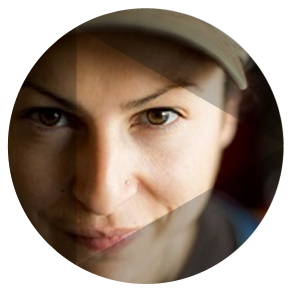
TIO TOMÁS, A CONTABILIDADE DOS DIAS
Uncle Thomas, Accounting For The Days
Running for the Jean-Loup Passek Award forBEST INTERNATIONAL SHORT OR MEDIUM LENGTH FILM
BEST PORTUGUESE DOCUMENTARY
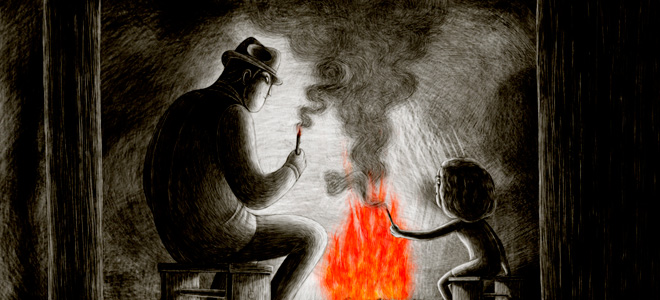
Regina Pessoa | Portugal, 2019, 13'
From Regina’s personal and visual memories, a tribute to her uncle Thomas, a humble man with a simple and anonymous life. This is my acknowledgment how one does not have to be somebody to become exceptional in our life.
- Photography / Animation: Regina Pessoa, André Marques, Alexandre Braga, Sylvie Trouvé, Dale Hayward, Marc Robinet, Soukaïna Najjaranne, Nils Delot
- Sound: Normand Roger
- Editing: Abi Feijó
- Production: Ciclope Filmes - Abi Feijó; ONF/NFB - Julie Roy; Les Armateurs - Reginald de Guillebon

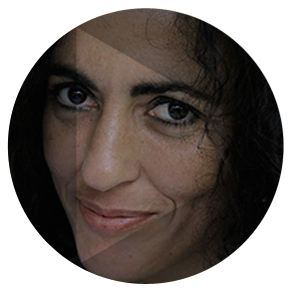
WASH ME PLEASE
Running for the Jean-Loup Passek Award forBEST INTERNATIONAL SHORT OR MEDIUM LENGTH FILM
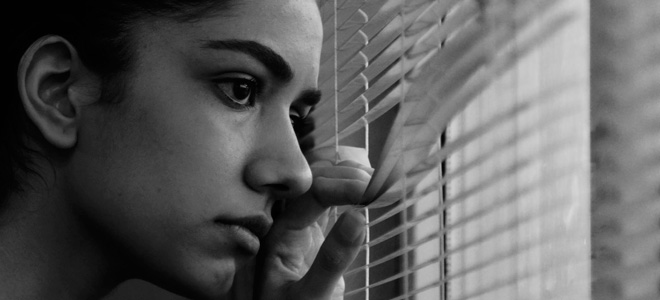
Ali Nikfar, Saeed Mayahy | Iran, 2018, 6'
She decided to go out and took pictures from demonstrations in street.
- Photography: Masoud Kazerouni
- Sound: Saeed Mayahy
- Editing: Ali Nikfar
- Production: Ali Nikfar

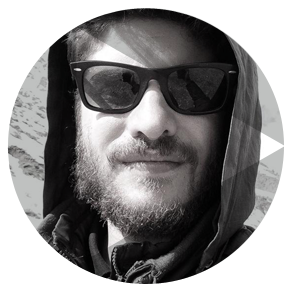
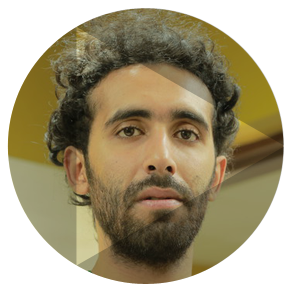

CIDADE PEQUENA Small Town
Guest Film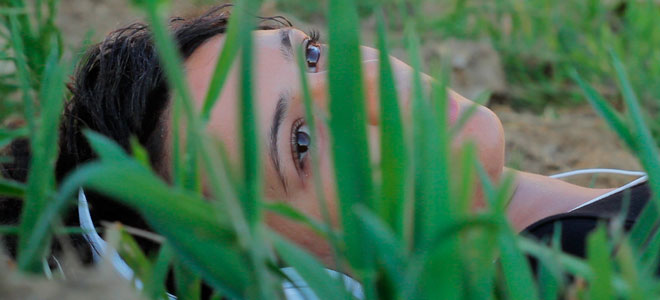
Diogo Costa Amarante | Portugal, 2016, 19'
Returning to Vila do Conde, where he previously presented Rosas Brancas (2013), Diogo Costa Amarante once again explores the theme of family bonds and memories in a story interspersed with more intriguing and disturbing episodes. Cidade Pequena is a film primarily based on very audible sounds and photography, particularly night shots, which create an intimate and immersive atmosphere that aims to draw the audience into its world. Within this relationship, the intervention of the two different narrators is essential in setting the rhythm of the film and emphasising its unusual and interesting duality.
- Photography: Diogo Costa Amarante
- Sound: Diogo Costa Amarante, Miguel Cordeiro
- Editing: Diogo Costa Amarante
- Production: Diogo Costa Amarante

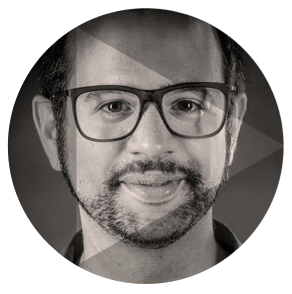
SINAIS DE SERENIDADE POR COISAS SEM SENTIDO Signs Of Stillness Out Of Meaningless Things
Guest Film
Sandro Aguilar | Portugal, 2012, 28'
According to the perpetual lunar calendar: “When the embers or fire sparks catch to the pot of water, it signifies wind. When the hills echo very loudly and the sea creates great noise, it signifies tempestuous winds and storms at sea. When, at dawn, dense fog is formed, it signifies serenity for two days.” Let’s wait and see.
- Photography: Rui Xavier
- Sound: Pedro Melo
- Editing: Sandro Aguilar
- Production: Sandro Aguilar, Luís Urbano, O Som e a Fúria

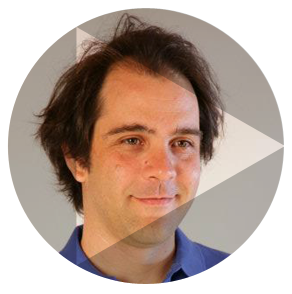
MENINA
Guest Film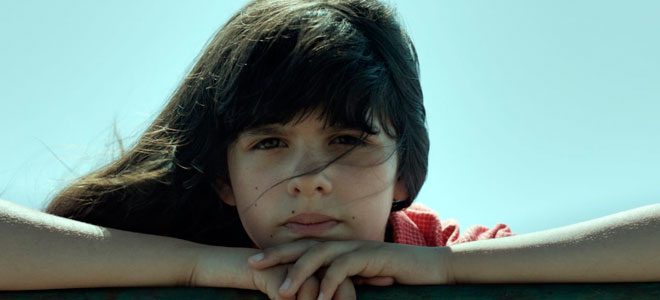
Cristina Pinheiro | France, 2017, 100'
The story revolves around Luisa Palmeira, born in France from Portuguese immigrants. In 1979, Luisa is ten years old. Almost a grown-up in the eyes of her illiterate mother, she remains just a little girl to her hard-drinking father.
- Photography: Tristan Tortuyaux
- Sound: Utku Insel
- Editing: Isabelle Manquillet
- Production: Mathieu Bompoint

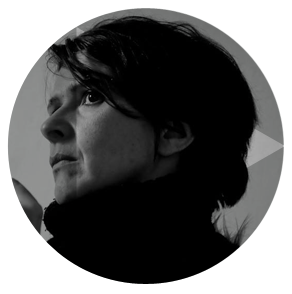
DOMUS
Frontal Shot 2018 . Film Residency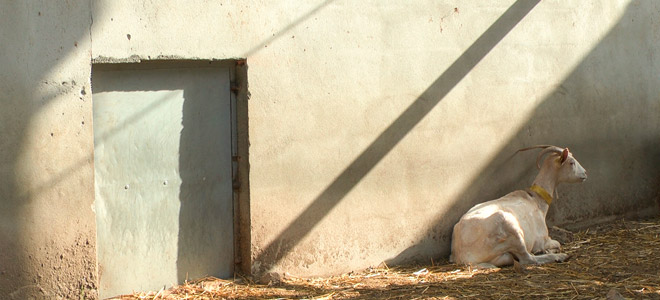
Inês Silva | Portugal, 2019, 14'
There is a place suspended by the currents of the river Minho that overflows the desire to cross the border and run towards new horizons. This is what the small community of Melgaço faces every day - with those who decide to leave. Although there are those who row against the current, to return home.
- Directing, Editing, Color Grading: Inês Silva
- Director of Photography, Editing, Sound Mixer: Henrik Ferrara
- Sound Director: Jéssica Monteiro
- Cast: Verónica Solheiro
- Music: "Esse Olhar que era só teu" kindly provided by DEAD COMBO

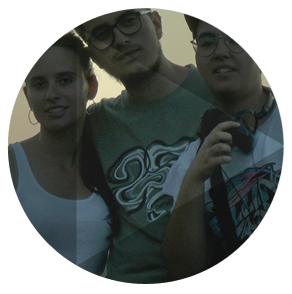
DIREITO POR LINHAS TORTAS
Getting there in a roundabout way
Frontal Shot 2017 . Film Residency
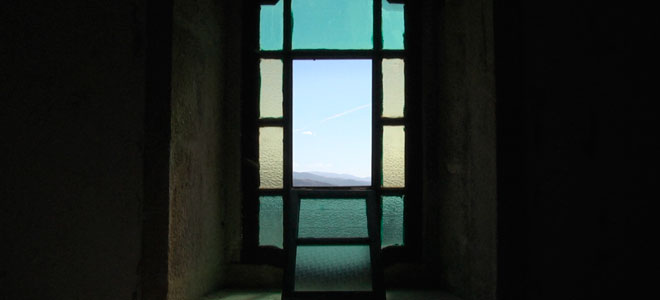
Martina Tzvetan | Portugal, 2019, 14'
This documentary depicts the story of two men and their respective paths, obstacles, disappointments and achievements that, despite the similarities of their roots, have taken rather different directions.
- Directing: Martina Tzvetan
- Director of Photography: Mariana Quaresma
- Sound Director: Vasco Silva
- Editing, Color Grading: Vítor Hugo
- Support: VoArte
- Cast: Padre José Alberto Sousa, João Paulo Rodrigues
O ÚNICO DIA QUE NÃO REPETIMOS
The Only Day We Don't Repeat
Frontal Shot 2018 . Film Residency
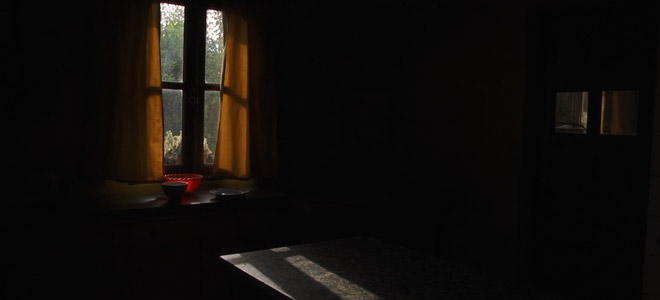
Maria Inês Rodrigues | Portugal, 2019, 17'
From the top of northernmost Portugal, the August sun strikes the prehistoric ruins that remain yet to be filmed. The inhabitants waiting for the beginning of the funeral ceremony are protected from curious glances. This is the reconversion of a memory through the mysteries to which we have no access except by the passage of time.
- Directing, Photography: Maria Inês Rodrigues
- Editing, Image Assistance, Special Effects: Joana Baptista
- Sound Capture: Diego Zon
- Sound Design: Rolando Babo
- Cast: Dorinda Domingues, Dorinda Pinheiro, Francisco Esteves, José Pinheiro, Maria Adelina Gonçalves, participantes Melgaço Radical

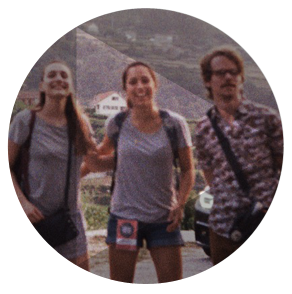
SABOR SALGADO
Salted Flavour
Frontal Shot 2018 . Film Residency
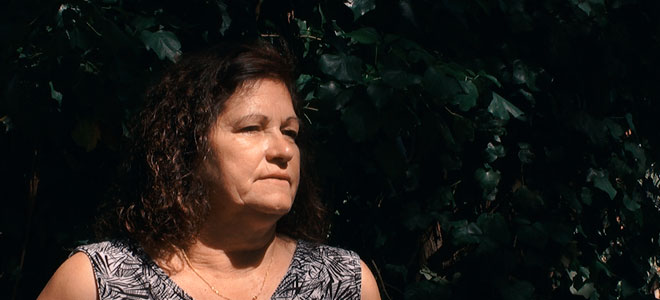
Vasco Trabulo Bäuerle | Portugal, 2019, 8'
Reality and fiction intersect. The myth is reborn.
- Directing, Editing, Photography: Vasco Trabulo Bäuerle
- Sound Capture, Sound Mixer: Filipe Moreira
- Photography, Color: João Dias
- Cast: Maria Clara dos Santos Araújo, Inês Jonas, Jéssica Monteiro


TONINHO, O RINGO D'ARMANDA
Toninho, Armanda’s Ringo
Frontal Shot 2018 . Film Residency
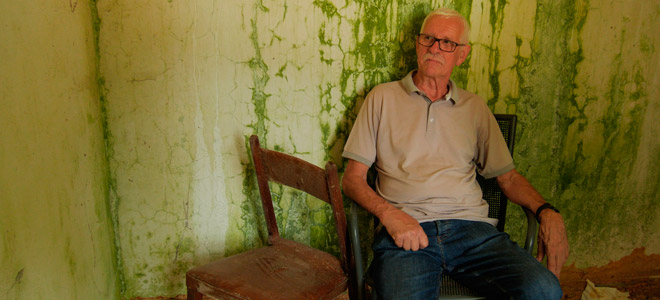
Emanuel V. da Silva | Portugal, 2019, 14'
Dislocated in a time when the photographed image of others prevails, Ringo, the aged boy of his mother Armanda, meanders unphotographable on the streets and roads of Melgaço. He invariably collides with unresolved crossroads: where the past, the present, and the foreknowledge of an empty future jostle one another. Crossroads where Ringo’s star shines one moment and fades on another. Where night appears and the dawn forgets.
- Directing, Photography, Editing: Emanuel V. da Silva
- Sound Capture, Director's assistant: Luís Miguel Portela
- Sound Design and Re-recording Mixing: Filipe Moreira
- Color Grading: Miguel Cervan
- Cast: António "Ringo" Rodrigues, Ilda Dias, José Henrique Domingues

